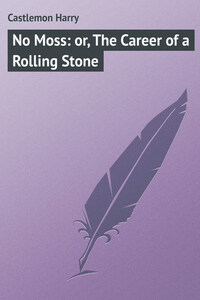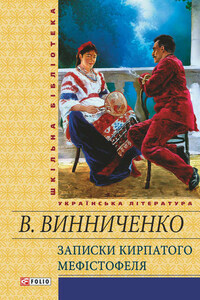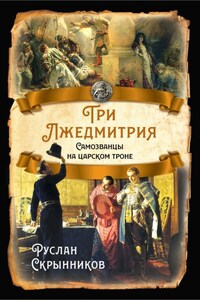CHAPTER I
UNCLE JOHN AND NED
"Well, Ned, I must say, that you have had some narrow escapes. Have you seen anything of those ranchemen lately? I mean the one who owns the stolen horse and his companion?"
"No, sir; and I don't want to see them, either. It is true that they might not recognise me in these clothes, for every time they described me, they spoke of my buckskin coat and silver buttons; but I have no desire to run the risk!"
"You say you haven't seen Gus Robbins since the day you reached town. Where do you suppose he is?"
"I haven't the least idea. All I know is, that he has not gone home. He got angry at some little thing I said, and left without bidding me good-by. But I say, father, I don't want to stay here any longer. I shall not feel safe until I am miles away from Texas!"
"Well, where do you want to go, and what do you want to do?"
"I don't know; I haven't thought about it. George and I talked of going up to the head-waters of the Mississippi, and coming back in a canoe. I should have enjoyed such a trip, but George had to go and get himself captured by those Greasers, and of course that put an end to that scheme."
"If Gus Robbins were here he might go with you. I suppose you wouldn't care to go back to Foxboro' under the existing circumstances?"
"No sir, I should not. All the folks there know that Gus ran away from home and came down here to visit us, and they would have too much to say about it. We couldn't call on Mr. Robbins, of course. He is perfectly well aware of the fact that I sent Gus the money to defray the expenses of his journey, and he'd give us the cold shoulder at once. But, father, what do you suppose those Greasers wanted of George? What did they intend to do with him after they had taken him across the river?"
"I am sure I don't know. I am sorry that Gus left you as he did, for there is no knowing what will become of him."
"What will the neighbors say when they learn that George is gone, and that you made no effort to find him? Won't they suspect something?"
"I can't help it if they do. If there is anything done about it, Mr. Gilbert must be the one to do it; for of course I can't go back there until those ranchemen and Mr. Cook are satisfied. Now, make up your mind where you want to go, and we will leave Brownsville to-night."
Uncle John Ackerman and his son Ned had been closeted in their room at the hotel for the last hour, talking over the exciting events that had happened since the latter left home. The boy, as we have already said, told a truthful story, but his father had very little to tell him in return. He did not want to talk about George, and every time Ned made inquiries concerning him, Uncle John answered his questions in as few words as he could, and made all haste to turn the conversation into another channel. He seemed to grow nervous and excited every time his nephew's name was mentioned; and this, taken in connection with his anxiety to avoid all allusion to him, which was much too palpable to escape Ned's notice, made the latter believe that his father knew more about George's capture than he was willing to reveal.
"He is keeping something from me," said Ned, to himself, over and over again; and the longer the interview continued, the firmer became his convictions on this point. He brought his cousin's name in at every opportunity, but could neither surprise nor coax his father into saying more than he had already said, viz.: That he knew nothing whatever of the object the Mexicans had in view, when they captured George; and could not even guess what they intended to do with him. Those who have read the preceding volume of this series, know the statement to be false; and to enable those who have not read it to follow this story understandingly, we will spend a few moments upon the missing boy's past history.
George Ackerman, our hero, was born, and had spent the most of his life on his father's cattle ranche, which was located a few days' journey from one of the small frontier towns of Texas. When he was about thirteen years of age his father died, leaving his immense property in trust to his only brother, John Ackerman, who was named as George's guardian. Uncle John came to Texas at once, bringing with him his son, Ned; who, by the terms of the will left by George's father, was to be the heir to the property in case his cousin did not live to reach his majority. That provision of the will, was a most unfortunate one for George, for it was the means of bringing him into a great deal of trouble.
Uncle John was a poor man up to this time, and had been obliged to work hard for his living. He held the position of book-keeper in a dry-goods store in the town in which he lived, and Ned was clerk in the same store. The latter was anything in the world but an industrious boy, and when he learned that his father was to have the entire management and control of an estate worth forty thousand dollars a year, his astonishment and delight knew no bounds.
For awhile, Ned enjoyed the life of ease he led in his new home. The first thought that came into his mind when he awoke in the morning was, that during the whole of the long day before him, he need not turn his hand to labor of any kind. There were a good many servants about the ranche who were paid to work; and it was not even necessary that Ned should black his own boots or saddle his horse. He had nothing to do but enjoy himself. This was a glorious way to live, and Ned told himself that he should never grow tired of it. But he did; and he even learned to hate his life of inactivity and uselessness, as cordially as he had hated the life he led in the dry-goods store in Foxboro'. There was literally nothing he could do but ride on horseback, and Ned had found by experience, that that was hard work. There was nothing to be seen on the ranche; there was not a house in sight; no boys with whom he could associate; no books in the small, well-selected library that he cared to read; and the hours hung heavily on his hands.














